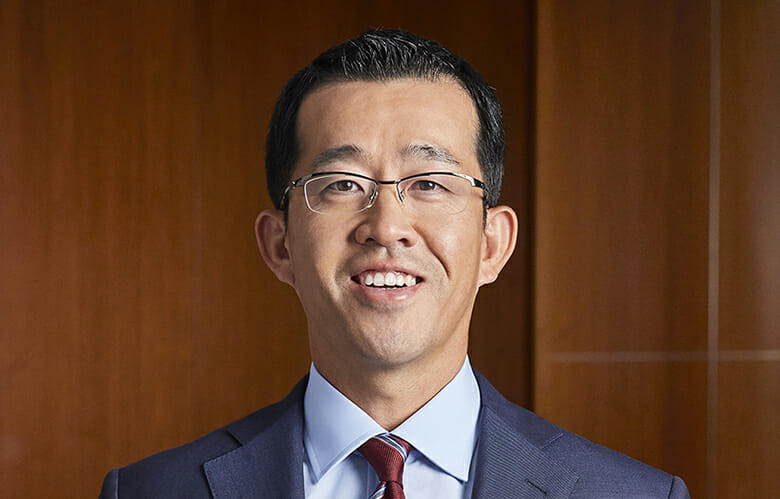
The Moxy Kyoto Nijo has a new owner
US private equity giant Blackstone has acquired a Kyoto hotel from Goldman Sachs, as global investors snap up Japanese hospitality assets to take advantage of a post-pandemic tourism rebound in Asia’s second-largest economy.
Blackstone purchased the 158-key Moxy Kyoto Nijo hotel from Goldman Sachs, representatives of the two US financial giants confirmed to Mingtiandi, with market sources indicating that the deal closed on 1 December. A report by Bloomberg on Tuesday said the asset changed hands for JPY 8 billion ($54 million).
The transaction comes as Japan’s tourism recovery, low interest rates, and weak currency fuel a surge in institutional demand for hospitality assets in the country, with average daily rates (ADR) and revPAR for hotels having already bounced back to pre-pandemic levels or better, according to industry analysts.
“Most major markets in Japan have experienced revPAR recovering to pre-pandemic levels due to strong ADR growth, in most cases above 2019 levels, while occupancy levels have not recovered fully to 2019 levels,” said James Abe, head of investment sales for hotels and hospitality group at JLL in Japan. “As the number of inbound visitors continues to recover and flights into Japan increase, we believe occupancy will continue to recover in 2024.”
Buying and Selling
The asset is one of a number of Moxy-branded Japanese hotels which Goldman Sachs acquired in Japan, with Tokyo-based Pacifica Capital having developed the Kyoto property for which it also acted as asset manager. Goldman Sachs in 2017 also acquired Moxy Tokyo Kinshicho a 205-key property which Pacifica had converted from an office building. During that same year the investment bank also acquired the 155-key Moxy Osaka Honmachi independently of Pacifica.

Daisuke Kitta, head of Japan real estate for Blackstone
The sale of Goldman’s commercial to hotel conversion comes just a few months after the company’s asset management division teamed up with the Abu Dhabi Investment Authority (ADIA) and Singapore’s SC Capital Partners in July to acquire a portfolio of 27 resort hotels from property giant Daiwa House Industry for $900 million.
Investors Pile In
Famed for its temples and traditional culture, Blackstone’s bet on the Kyoto asset is seen by analysts as a bet on increased tourism demand.
Monthly tourist arrivals in Japan officially reached pre-pandemic levels in October, with 2.52 million visitors compared to roughly 2.50 million in October 2019, according to statistics from Japan’s National Tourism Organization.
The recovery has caught the attention of global investors, with Japan’s red-hot hotel sector dominating cross-border commercial property investments in Asia this year.
The Japanese hospitality segment clinched $2 billion worth of deals through early August — more than any other sector — and received around half of total hotel investment in Asia in the third quarter, according to MSCI Real Assets.
In the same month that Goldman, ADIA, and SC Capital acquired their portfolio of resort hotels, Hong Kong-based AB Capital Investment announced the addition of a fourth Japanese asset to the hospitality-focused private equity firm’s portfolio since the pandemic.
Hospitality deals accounted for some of the biggest real estate transactions in Japan this year, with buyout giant KKR working with Hong Kong’s Gaw Capital Partners to buy the Hyatt Regency Tokyo for JPY 57.1 billion ($410 million) in March. That deal came after Canada’s BentallGreenOak acquired the Rihga Royal Hotel Osaka for JPY 50 billion ($360 million) in January.
Last year, Singapore’s sovereign wealth fund GIC acquired a portfolio of railway operator Seibu Holdings’ hotels, resorts and golf courses managed under its Prince hospitality brand in a JPY 150 billion ($1.3 billion) deal.
Increased competition for Japanese hotel assets has led investors to look beyond the main tourist cities of Tokyo, Osaka, and Kyoto for deals.
“Well-located, 2-3 star hotels with over 100 keys in Tokyo, Osaka, and Kyoto continue to be popular with institutional funds and offshore family offices, particular properties with international flags or properties that can be rebranded/repositioned near term,” said Craig Pearce, managing director at consultancy Nikota Capital. “Demand from funds for hotels in other larger regional cities like Fukuoka and Sapporo is increasing, and some investors are starting to consider investing in established resort areas in Japan.”
Note: This article has been updated to show that Pacifica Capital developed Moxy Kyoto Niko and converted Moxy Tokyo Kinshicho from an office property. The company was not involved in the Moxy Osaka Honmachi project. Mingtiandi regrets the errors.
Leave a Reply